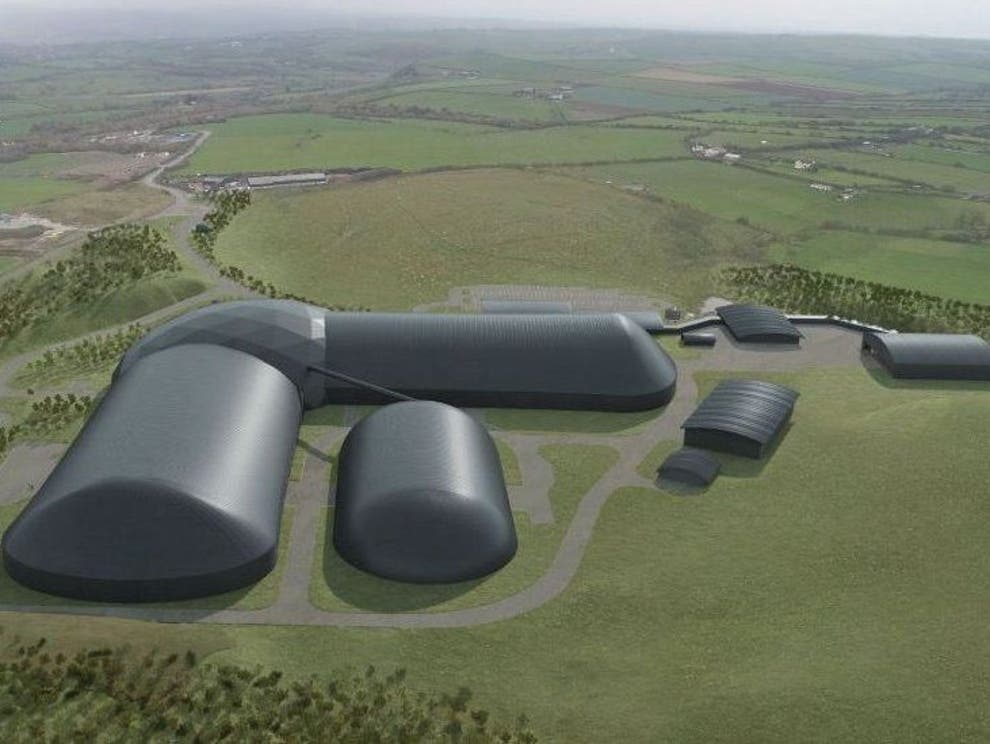Controversial new coal mine plan to be reconsidered by Cumbria council
Plans for a new coal mine in the UK prompted outrage from leading scientists, activists and politicians

Cumbria County Council says it will reconsider the planning application for a controversial coal mine in the light of “new information” from the UK’s independent climate advisers.
Leading scientists, activists and politicians have vocally opposed plans for a new mine near Whitehaven, which would be the UK’s first deep coal mine in 30 years. Councillors have already approved the plans three times, most recently in October 2020.
The government has faced intense criticism in recent weeks after taking the decision not to “call in” the plans for review despite concerns that the mine could harm the country’s efforts to rapidly cut its greenhouse gas emissions.
In defence of its decision not to intervene, the government has repeatedly described Cumbria's planned coal mine as a “local issue” – a term that has been met with derision by environmental campaigners and scientists.
Last week, leading climate scientist James Hansen wrote to Boris Johnson urging him to intervene in plans for the mine, which would produce coking coal for use in steel production.
Dr Hansen, echoing the words of many other scientists and campaigners, said allowing the mine to go forward would harm the UK’s reputation ahead of Cop26, a key round of UN climate talks to be hosted in Glasgow later this year.
He wrote: “In leading the UK, as host to the Cop, you have a chance to change the course of our climate trajectory, earning the UK and yourself historic accolades – or you can stick with business-almost-as-usual and be vilified in the streets of Glasgow, London, and around the world. It would be easy to achieve this latter ignominy and humiliation.”
More than 80 eco and humanitarian groups including Save the Children also wrote to the government opposing the decision.
And in a letter published in early February, Lord Deben, chairman of the Climate Change Committee (CCC), said the decision not to call in the proposals for further scrutiny gave a “negative impression of the UK’s climate priorities”.
He wrote: “The opening of a new deep coking coal mine in Cumbria will increase global emissions and have an appreciable impact on the UK’s legally binding carbon budgets.
“The mine is projected to increase UK emissions by 0.4Mt (megatonnes) of CO2e (carbon dioxide equivalent) per year.
“This is greater than the level of annual emissions we have projected from all open UK coal mines to 2050.”

A spokesperson for the county confirmed that it would reconsider the planning application in the light of “new information” from the CCC.
The spokesperson said: “This decision has been taken because in December 2020, the government’s Climate Change Committee released its report on its recommendations for the Sixth Carbon Budget, a requirement under the Climate Change Act.
“The report, among other things, sets out the volume of greenhouse gases the UK aims to emit during 2033-2037.
“This new information has been received prior to the issue of the formal decision notice on the application. In light of this, the council has decided that the planning application should be reconsidered by the Development Control and Regulation (DC&R) Committee.”
In December, the CCC set out a detailed blueprint for how the country could get to net-zero emissions by 2050. This report noted that reaching net zero would require sweeping changes across all sectors of the economy, including industries such as steel production.
Green groups welcomed Cumbria County Council's decision to reconsider the planning application.
Friends of the Earth climate campaigner Tony Bosworth said: “Cumbria County Council is right to review its decision – allowing this climate-wrecking coal mine to go ahead would completely undermine UK leadership ahead of this year’s vital climate summit.
“Quite simply, there is no place for new coal extraction in the middle of a climate emergency.
“It’s time to leave coal in the ground and focus on fast-tracking a green industrial revolution. This will bring the new jobs and business opportunities that are needed in communities everywhere, including Cumbria.”
Greenpeace UK’s chief scientist, Doug Parr, said that a U-turn from the council would be welcome, but added: “Any such shift does not let the government off the hook, though.
“Ministers should be ashamed of their failure to step in on an issue of obvious international significance. Even if the coal mine is canned by Cumbria, this is still a global embarrassment for the UK in a year when we were supposed to be setting an example on climate action for the world to follow.”
A spokesperson for the ministry of housing, communities and local government said: “The secretary of state’s powers to call in a case are used very selectively, and on 6 January 2021 he decided not to call in this application. The responsibility for determining it is with Cumbria County Council. Further representations to MHCLG when received are carefully considered.”
Join our commenting forum
Join thought-provoking conversations, follow other Independent readers and see their replies
Comments

Bookmark popover
Removed from bookmarks